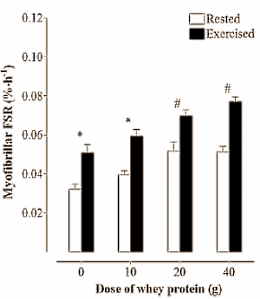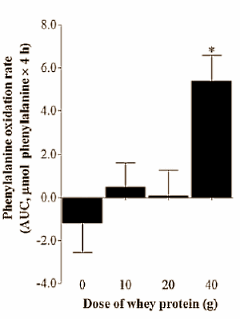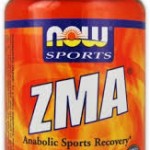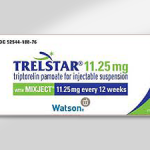20g Whey Protein Optimal Post-Workout
Blog Entry #35
By Admin – Steroidal.com
Post-workout nutrition can be tricky business. Supplement companies are constantly coming up with new idea’s to get you to purchase their products to maximise growth during the ‘post-workout out window’. This time frame does exist and it is a wise idea to consume something protein rich during the time after your exercise regime. But with so many choices, which works and what doesn’t? We have di and tri peptides or hydrolysed proteins (basically pre-digested), various protein rich products, such as, soya protein, egg, hemp, pea, beef, milk, casein and whey protein to choose from. Some are extremely fast digesting and entering the blood stream, others are slower and marketed this way (casein).
Sports scientists at the University of Stirling in Scotland recently published some data comparing various whey protein isolate doses post-workout. This will be reported in the American Journal of Clinical Nutrition shortly. The study was done on 48 volunteers who were aged in their early twenties, so would be applicable to a large portion of Steroidal.com’s audience.
The 48 participants were told to train their legs doing 8 sets of 10 reps on the leg press. They were also told to use 80 per cent of the weight with which they could only manage 1 rep. 10 minutes later the subjects were given 0, 10, 20, 40 grams of whey protein isolate to drink.
The figure above shows what happened to FSR [the rate at which muscle fibres were synthesised] did not increase by a statistically significant amount after taking 10g whey isolate, but that it did do so after taking 20g or 40g whey isolate.
The graph above shows that when 40g whey isolate was ingested, the amino acid phenylalanine oxidised dramatically. The researchers conclude that this is because the body’s starts to burn amino acids at doses above 20g of whey isolate. A similar effect was observed on urea or carbamide. The liver produces urea and it is regulated by N-acetyl glutamate. Urea is what’s found in urine and is the by-product of broken down protein. The concentration of urea in the blood increased sharply in the subjects that drank 40g whey isolate, compared to the 20g group.
“It remains unknown whether the optimal dose of protein for the maximal stimulation of muscle protein synthesis differs between the 120kg athlete and 80kg male exerciser compared with the 60kg female exerciser”, the British researchers write. “Future studies should be designed to fully elucidate how muscle mass or the amount of muscle mass exercised influences the response of MPS to different doses of protein.”
Much like all clinical studies done on over the counter supplements this study was sponsored. When a study is sponsored by a manufacturer, the results can often be questioned due to the positive outcome of the study being important for the sale and marketing of the said tested product or ingredients.
GlaxoSmithKline Nutritional Healthcare provided the funding for this experiment and provided the whey protein isolate. Unfortunately, GlaxoSmithKline Nutritional Healthcare also produces a product called Lucozade Sport Pro Muscle Protein, which contains the whey protein isolate. So as you can see, if this clinical trial showed negative effects, would it have been published? Could the results have been altered to suit their interests? We’re not suggesting any of these things, but it has happened in the past with other sponsored trials with great results. Although it have been better for the 40g whey isolate group to show the best results as you’d be consuming more of their product(s) at that dose.
Either way, we think this is a decent enough study and GlaxoSmithKline are a billion dollar entity, not some university no ones heard of operating out of Nigeria showing a new herb boosts testosterone levels by 346%.
Source: http://www.ncbi.nlm.nih.gov/pubmed/24257722
http://ergo-log.com/optimal-post-strength-training-whey-dose-20-g.html








